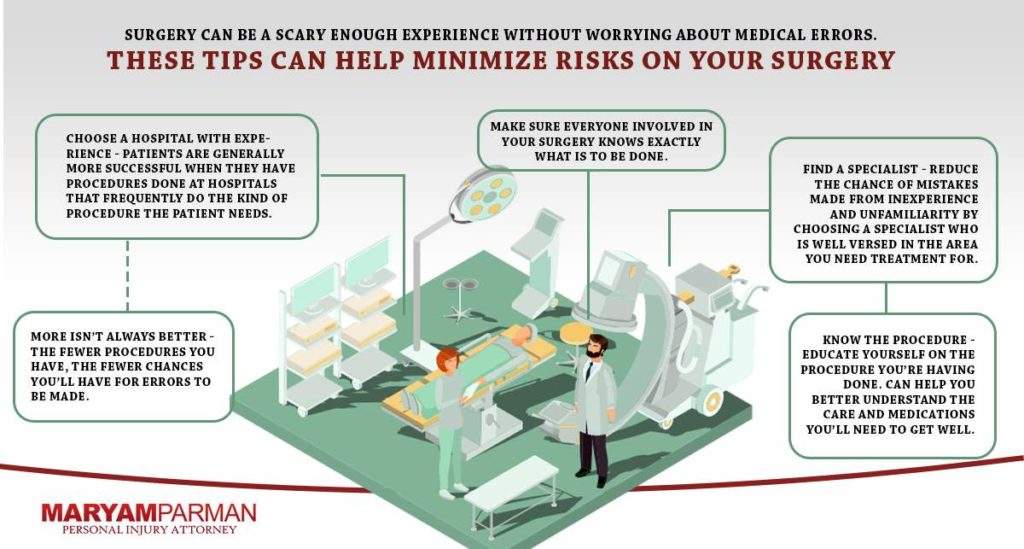Surgical gaffes like amputating the wrong leg make headlines, but we rarely hear of a large number of other mistakes that occur in hospitals on a daily basis. Delays in diagnosis are a big problem, keeping a patient from receiving timely treatment. Incorrectly administered medications are another common medical error, as are the wrong prescriptions being dispensed. Fatal chemotherapy overdoses occur and patients under anesthesia die regularly.
While the present volume of medical errors is intolerable, the situation is eminently fixable and the medical profession is feverishly applying itself to do so. Many safeguards to reduce the likelihood of medical errors have already been implemented. Hospitals are beginning to use computerized prescriptions to ensure that pharmacists don’t misread doctors’ notoriously poor handwriting. Many doctors themselves are generating their prescriptions by computer. That’s a start.
Anesthesiologists are demanding standardization of anesthesia equipment. The Food and Drug Administration is tightening its control of drug names to ensure that newly introduced drugs do not bear names that could be confused with drugs already in use. Congress has passed legislation ordering the agency for health care policy and research to hunt for strategies to reduce medical errors.
This is all fine and good, but what is the average patient to do to ensure his own safety when seeking medical care? With healthcare being a decade behind other high-risk industries in improving safety, it’s important for every patient to be proactive in monitoring their own health care situation. Those who are too sick to do this themselves need to enlist the help of a family member or close friend. The good old days of simply putting yourself into the hands of your doctor are over.
Here Are Some Ways to Protect Yourself Against Medical Errors:
Get the Right Doctor!
Before choosing a medical professional to do your operation, do a little research beforehand. You may find surgeons in your area that specialize in the kind of treatment you need or who have credentials that might make them a better choice. Many women, for example, go to their gynecologist for answers to all sorts of maladies. Specialists are specialists for a reason. Before you put on that paper gown, research the doctor.
Don’t Schedule Multiple Appointments with Multiple Doctors
None of them will get to know you. Stay with one doctor until it becomes obvious that you’re not communicating, then don’t hesitate to find another. Always evaluate the depth of attention given to your concerns and the thoroughness of the answers you receive. If you’re uncomfortable with any of this, find another doctor, but don’t bounce around back and forth between doctors. They won’t fail to recognize this, and even the best of them will rapidly lose interest in you. Doctors are human, after all.
Keep Close Track of Your Medical History
Your doctor cannot possibly know everything about you, so provide as full a recap of your medical history as you can. Be sure to include any family history of illness.
Double Check Any Diagnosis
There are thousands of diagnoses, but the average doctor only sees about 250 of them in the course of a career. So, don’t be afraid to remind your doctor of the existence of other possibilities that may align with your condition. Don’t be afraid to ask for a second opinion! If the doctor balks, find another doctor.
When You Get a Prescription, Start Asking Questions!
What is it supposed to do? How does it work? Older patients especially are at risk here because many are on multiple medications and it is important that these drugs do not conflict with each other. The doctor needs to know exactly what the patient is taking! Hurried doctors often overlook these details and it is up to the patient to guard against inadvertently receiving the wrong, or inappropriate medication.
Get Very Clear and Detailed Instructions from the Doctor!
Don’t rely on the pharmacist for this and do not be afraid to ask questions —lots of them. Get informed! If the doctor won’t answer or hurries through, find another doctor. After all, he’s billing his time at about twelve hundred bucks an hour.
To Avoid Being the Victim of an Especially Serious Medical Error, Be Sure Your Surgeon Knows Where to Cut!
Ask your surgeon to mark the incision while you’re awake. This will help calm your nerves as well as serve as a reminder for the surgeon. Make sure you receive an antibiotic within one hour of surgery.
Have a Friend or Family Member Along for Every Major Procedure
This person should be thoroughly familiar with the issue and in a position to remind medical personnel of any potential problems that could be overlooked.
Don’t Accept Any Invasive Procedures Simply on the Say-So of Your Doctor
Discuss the alternatives. Press for them! Many times, the alternatives out there are acceptable, even preferable. Don’t overlook them.
Finally…
Always bear in mind that your doctor is more than likely to be following the counsel of a pharmaceutical sales representative when prescribing a medication. This individual dispenses information which is in the best interest of the company, not the doctor, not the patient.
You know your own body better than anyone else. Accept that. Stay tuned to the effects of any medication prescribed for you and question anything that doesn’t feel right. Talk to your doctor, and if your doctor won’t listen, find another doctor.
And of course, if all else fails, having a good attorney close can be of great help. Get in touch with us if you are suffering from a surgery error.

